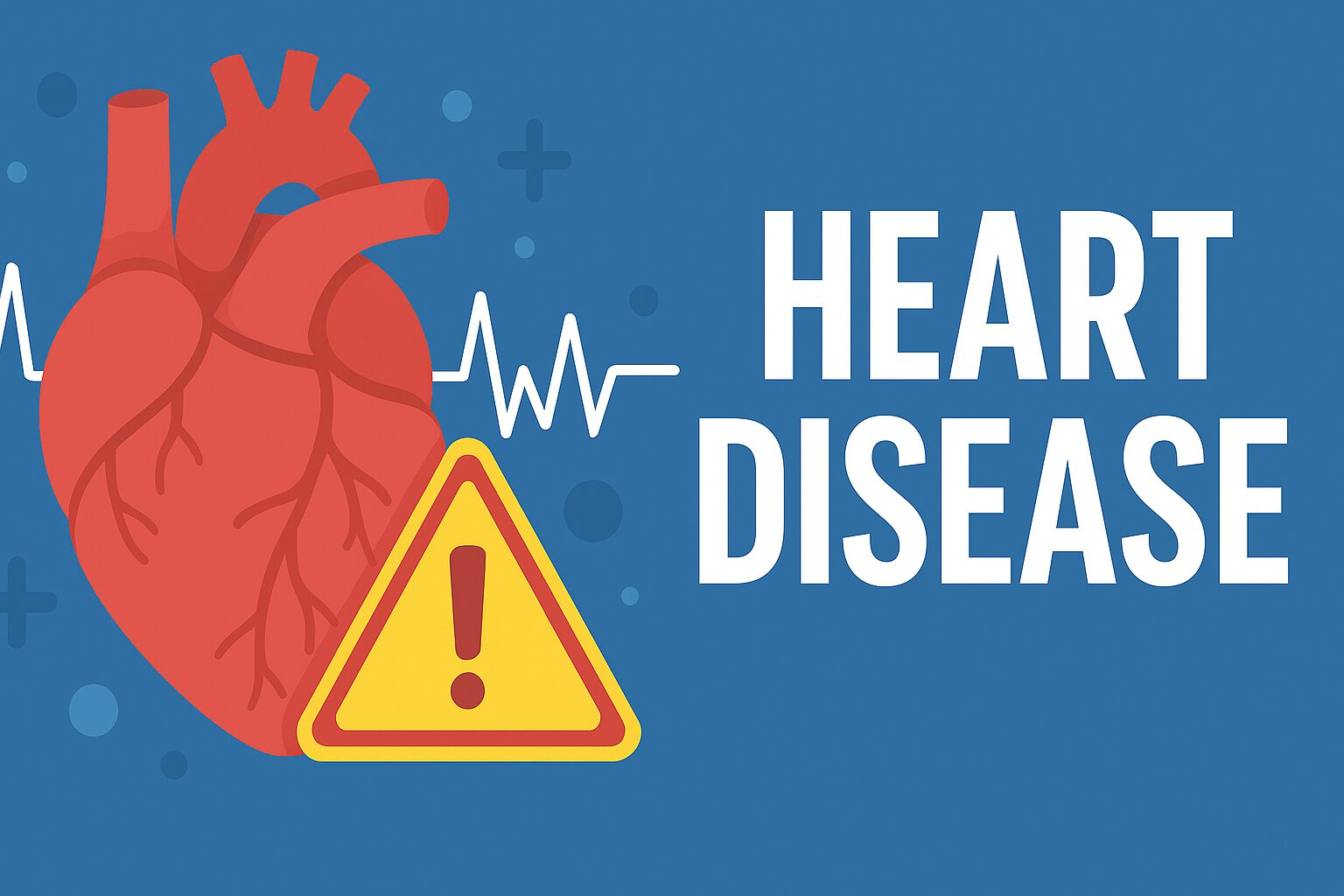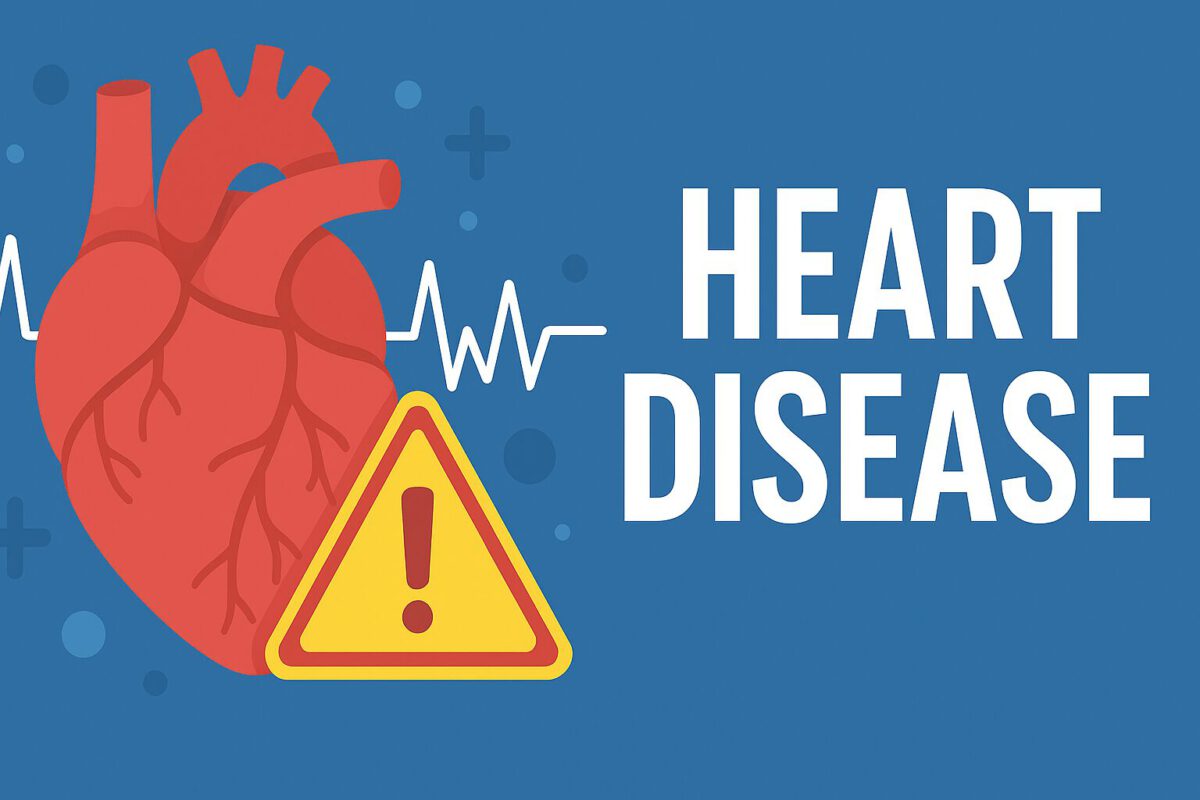Heart Disease: Causes, Prevention, and Lifestyle Interventions
Heart disease remains the leading cause of death globally, but the good news is that many forms of heart disease are preventable through lifestyle changes and early intervention. This article explores the causes, risk factors, and evidence based strategies to protect your heart health.
🫀 What Is Heart Disease?
Heart disease, or cardiovascular disease (CVD), encompasses a range of conditions affecting the heart and blood vessels.The most common type is coronary artery disease (CAD), which occurs when plaque builds up in the arteries, reducing blood flow to the heart. This can lead to chest pain (angina), heart attacks, and other complications.
⚠️ Major Risk Factors
Several factors increase the risk of developing heart disease:
- High Blood Pressure (Hypertension): Elevated pressure can damage arteries over time.
- High Cholesterol: Excess LDL cholesterol contributes to plaque formation.
- Smoking: Tobacco use damages blood vessels and lowers oxygen in the blood.
- Diabetes: High blood sugar levels can damage blood vessels and nerves controlling the heart.
- Obesity: Excess weight strains the heart and is linked to other risk factors.
- Physical Inactivity: Lack of exercise contributes to weight gain and other risk factors.
- Unhealthy Diet: Diets high in saturated fats, trans fats, salt, and sugar increase risk.
- Family History: Genetics can play a role in heart disease risk.
A recent study highlighted that individuals with conditions like obesity, hypertension, and diabetes often had hearts that functioned as much as 45 years older than their actual age, emphasizing the impact of these risk factors.
🛡️ Prevention Strategies
Adopting a heart-healthy lifestyle can significantly reduce the risk of heart disease:
- Regular Exercise: Engaging in at least 150 minutes of moderate-intensity exercise per week can lower the risk of heart disease, cancer, and early death.
- Healthy Eating: A diet rich in fruits, vegetables, whole grains, lean proteins, and healthy fats supports heart health.
- Maintain a Healthy Weight: Achieving and maintaining a healthy weight reduces strain on the heart.
- Quit Smoking: Stopping tobacco use improves heart health almost immediately.
- Limit Alcohol: Moderate alcohol consumption, if any, is advisable.
- Manage Stress: Techniques like meditation, yoga, and deep breathing can help reduce stress.
- Regular Health Screenings: Monitoring blood pressure, cholesterol, and blood sugar levels helps in early detection and management.
Implementing these lifestyle changes can lead to significant reductions in cardiovascular disease risk.
🔗 Stay Connected
For more science-based health content, follow us:
- YouTube: The Life Lens 360
- Instagram: @thelifelens360
- TikTok: @thelifelens360
- X (Twitter): @thelifelens360
Explore our full playlist on health: The Life Lens Playlist
Visit our website for more resources: thelifelens360.com
📚 References
- Centers for Disease Control and Prevention. Heart Disease Risk Factors. https://www.cdc.gov/heart-disease/risk-factors/index.htmlCDC Deutschland+1CDC Deutschland+1
- EatingWell. Your Heart Could Be Aging Too Fast, New Study Suggests-Here’s What to Know. https://www.eatingwell.com/study-age-your-heart-prematurely-11732210EatingWell
- New York Post. Just 11 minutes of these activities a day lowers risk of heart disease, cancer and death. https://nypost.com/2025/05/05/health/11-minutes-of-these-activities-lower-risk-of-heart-disease-cancer-and-death/New York Post
- American Heart Association. Prevention of Coronary Heart Disease by Diet and Lifestyle. https://www.ahajournals.org/doi/10.1161/hc0702.103728AHA Journals+1AHA Journals+1
- National Institutes of Health. Lifestyle Strategies for Risk Factor Reduction, Prevention, and Treatment of Cardiovascular Disease. https://pmc.ncbi.nlm.nih.gov/articles/PMC6378495/PMC
Empower yourself with knowledge and take proactive steps towards a healthier heart.


